
Credit Union Financing for Energy Efficiency Upgrades
Last Updated: Mar 17, 2025Since 2009, tens of thousands of households in the US have relied on the solar tax credit to help offset the costs of installing renewable solar energy for their family. The average gross solar panel system cost for a US household stood at $13,142 in 2020. The 26 percent tax credit is a tremendous support for people attempting to lower the overall cost of installing renewable energy and having a more sustainable household.
The solar tax credit, which was initially set at 30 percent, began to drop in 2020. It will decrease to 22 percent in 2021 and will be discontinued in 2022 for residential solar PV systems. To make matters worse, a 30 percent year-one tariff on imported solar cells and modules will only increase residential solar panel systems' costs.
Along with renewable energy systems, homeowners wanting to make other energy-efficient upgrades to their homes are often faced with prohibitive costs. Renovating your home to achieve net-zero status might be a dream for environmentally aware homeowners. But, not everyone has $50,000 in savings to invest in building or renovating a green home. Most green renovations will indeed pay for themselves over time, and real estate professionals can affirm that green and sustainable features certainly increase any home's overall value.
Even though net-zero energy construction is becoming more cost-effective, most homeowners find that without a reliable and fair financing source, purchasing or renovating a home sustainably is beyond their financial means. Local credit unions across the country are possible sources of financing for energy-efficient upgrades that most homeowners are not aware of or have yet to contemplate. Below, we look at why you might consider reaching out to your local credit union if you are having difficulty financing your sustainable and energy-efficient build or renovation.
Energy Efficient Mortgages
The US Department of Energy recommends homeowners looking to purchase an energy-efficient home consider an energy-efficient mortgage (EEM). An EEM, also known as a green mortgage, is a loan product offered by different financing institutions. EEMs allow homeowners to reduce their utility bill costs by enabling them to finance the incorporation of energy-efficient features. An energy-efficient mortgage applies to both new housing purchases and to refinancing renovations or retrofits in existing homes.
Table of Contents
- Advantages of Credit Unions
- Large Credit Unions Offering Energy Efficiency Financing

In most cases, an EEM loan is offered as a 15 or 30 year fixed rate mortgage or as an Adjustable Rate Mortgage. These types of loans are offered through FHA-approved lenders. Homeowners are required to put down a 3.5 percent cash investment on the property. The total amount of the mortgage financing you receive is calculated using your home's value and the expected cost of planned energy-efficient improvements.
The savings that stem from the energy efficiency upgrades to your home will allow you to save on utility costs and devote more of your regular income to paying off the mortgage.
Unfortunately, many banks don't offer EEMs or other financing options for energy efficiency home upgrades. Traditional lending portfolios are often focused exclusively on conventional home mortgages, and many banks will be unwilling to consider the potential savings that come with an energy-efficient home. The US Department of Energy estimates that the average homeowner in the United States spends $2,060 on energy bills each year. Energy-efficient upgrades, then, might be able to offset the cost of an EEM significantly.
On the other hand, credit unions are often much more open to innovative loan options. They also are much more likely to offer FHA-approved EEM loans.

Advantages of Credit Unions
Banks are for-profit institutions, and it is essential to remember that their primary goal is to improve stockholder share. On the other hand, credit unions are non-profit institutions that circulate any profits to the organization's members. In many cases, the sharing of profits takes the form of unique member benefits such as low fees and low rates. This structure means that most credit unions will offer more competitive rates than banks.
Also, receiving a loan from a credit union requires you to become a member or a shareholder. As a member, you can recommend specific financing strategies, such as an EEM, that you would like to be available to the credit union's leadership.
Credit unions are usually community-centered financial institutions. They might belong to more extensive national networks such as the Credit Union Service Centers. But, they are often managed and operated by people who belong to a specific community. This proximity usually allows homeowners higher bargaining power when negotiating loans for energy efficiency upgrades to your home. Banks will often have rigorous and inflexible lending rules. In contrast, community credit unions are often open to hearing your plan to improve your home's energy efficiency and sustainability.
Large Credit Unions Offering Energy Efficiency Financing
Your local credit union might very well offer an EEM or some similar financing option to improve your home's energy efficiency. However, there are also larger credit unions that you might be able to approach. Below, we detail several credit unions (in both the US and Canada) that offer finance specifically for energy efficiency upgrades.

Clean Energy Credit Union
This new financial institution is unique because it solely focuses on providing loans for homeowners looking to purchase and implement clean energy products and services. They finance improvements like solar electric systems, electric vehicles, home energy efficiency retrofits, electric-assist bicycles, and net-zero energy homes. This credit union understands that financial barriers associated with traditional loan instruments make it hard for many homeowners to improve their homes' sustainability. They offer loans with quality terms so that your household can invest in the clean energy movement. At Clean Energy Credit Union, you can also open a savings account to help others access clean energy products and services. You can learn more about the specific loan products that they offer here.

Elevations Credit Union
Elevations Credit Union is another lender that offers several loan products specifically geared towards home energy efficiency renovations, specifically in Colorado. Their loans start with fixed rates as low as 2.75 percent. These loans can finance a wide range of energy efficiency upgrades, including energy-efficient windows, heating and cooling upgrades, Energy Star appliances, improved insulation, and more.
Energy Saving Products for the Home
Shop home improvement products that help save and conserve energy (power) in your home.
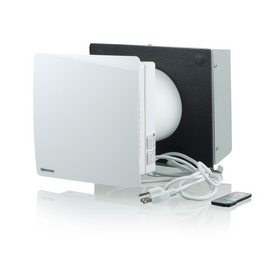
Vents TwinFresh Comfo RA1-50-2 Ductless Energy Recovery Ventilator
Vents
In Stock
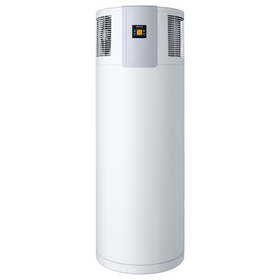
Stiebel Eltron Accelera 300 E Heat Pump Water Heater
Stiebel Eltron
In Stock

Emporia Classic Level 2 48 AMP EV Charger UL Listed
Emporia
In Stock
2 Colors
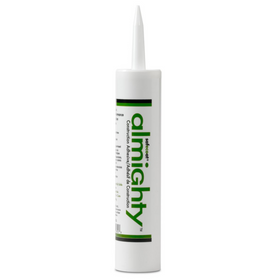
AFM Safecoat Almighty Adhesive Case of 12
AFM Safecoat
In Stock

Stiebel Eltron CON 300-2 Premium Wall-Mounted Convection Heater - 202030
Stiebel Eltron
In Stock
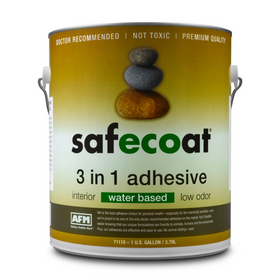
AFM Safecoat 3 in 1 Adhesive
AFM Safecoat
In Stock
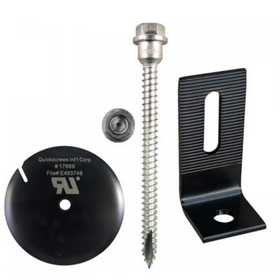
QuickBOLT QB2 with Microflashing Multi Roof Mount Solar Panel Fastener Kit
QuickBOLT
In Stock
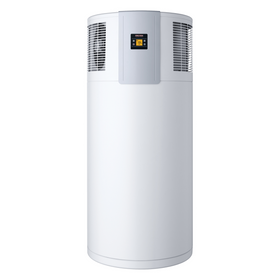
Stiebel Eltron Accelera 220 E Heat Pump Water Heater
Stiebel Eltron
In Stock
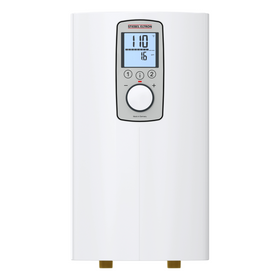
Stiebel Eltron DHC-E 8/10-2 Plus Point-of-Use Electric Tankless Water Heater - 202145
Stiebel Eltron
In Stock

Stiebel Eltron CON 150-1 Premium Wall-Mounted Convection Heater - 202026
Stiebel Eltron
In Stock

Alternatives Credit Union
Based in New York, Alternatives Credit Union also offers a wide range of energy efficiency loans and mortgages. They offer solar and energy-efficiency home equity loans and personal loans, depending on your particular financial situation. You can learn about how to become a member of this credit union here.

Omista Credit Union
Omista Credit Union is a fellow B. Corp. Omista offers green loans for both home renovations and electric vehicle purchases. Green Choice Home Loans are provided at rates of prime +1 percent and for improvements valued between $5,000 and $50,000.
Tobias Roberts
Tobias runs an agroecology farm and a natural building collective in the mountains of El Salvador. He specializes in earthen construction methods and uses permaculture design methods to integrate structures into the sustainability of the landscape.
